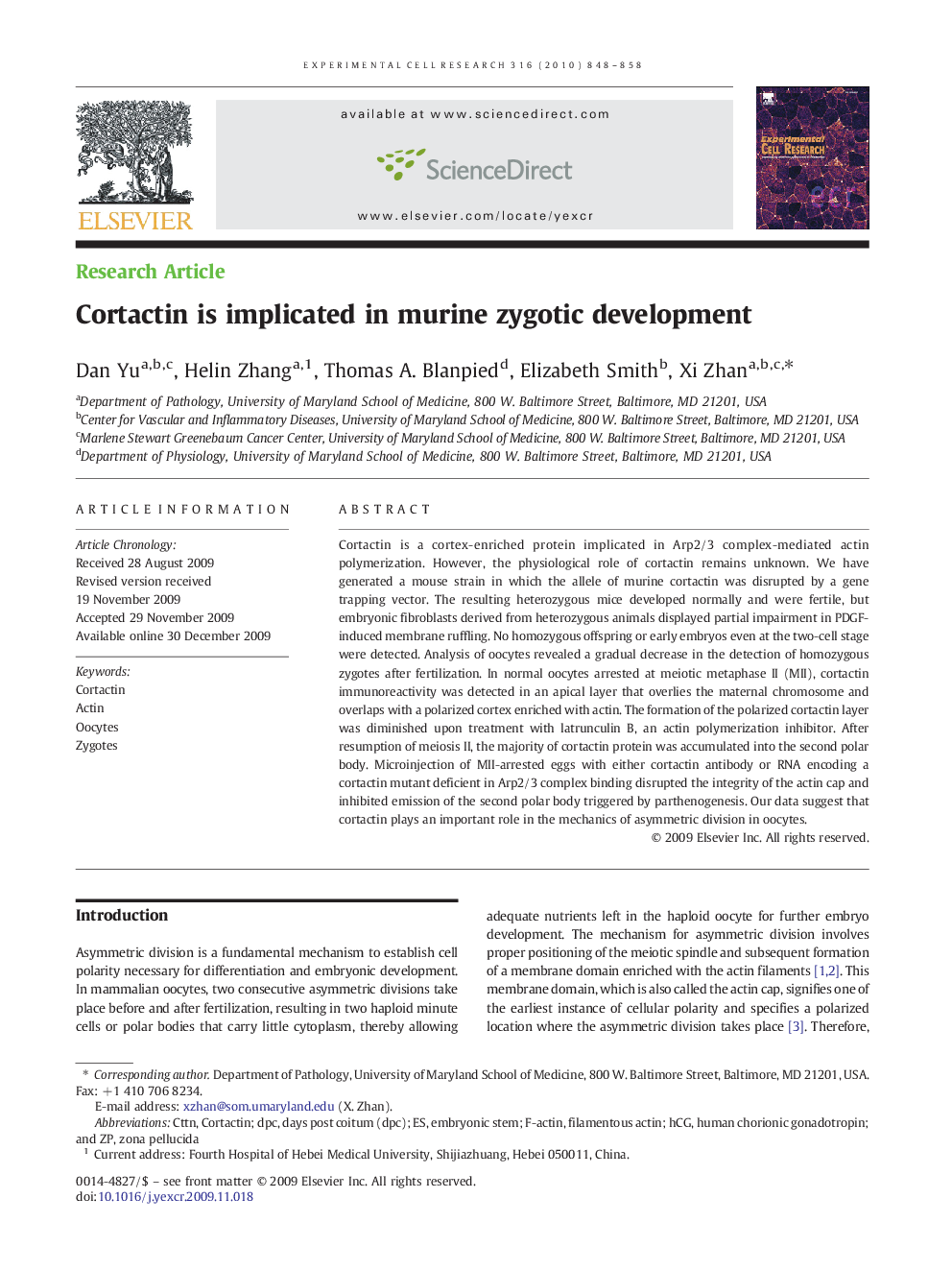| Article ID | Journal | Published Year | Pages | File Type |
|---|---|---|---|---|
| 2131171 | Experimental Cell Research | 2010 | 11 Pages |
Cortactin is a cortex-enriched protein implicated in Arp2/3 complex-mediated actin polymerization. However, the physiological role of cortactin remains unknown. We have generated a mouse strain in which the allele of murine cortactin was disrupted by a gene trapping vector. The resulting heterozygous mice developed normally and were fertile, but embryonic fibroblasts derived from heterozygous animals displayed partial impairment in PDGF-induced membrane ruffling. No homozygous offspring or early embryos even at the two-cell stage were detected. Analysis of oocytes revealed a gradual decrease in the detection of homozygous zygotes after fertilization. In normal oocytes arrested at meiotic metaphase II (MII), cortactin immunoreactivity was detected in an apical layer that overlies the maternal chromosome and overlaps with a polarized cortex enriched with actin. The formation of the polarized cortactin layer was diminished upon treatment with latrunculin B, an actin polymerization inhibitor. After resumption of meiosis II, the majority of cortactin protein was accumulated into the second polar body. Microinjection of MII-arrested eggs with either cortactin antibody or RNA encoding a cortactin mutant deficient in Arp2/3 complex binding disrupted the integrity of the actin cap and inhibited emission of the second polar body triggered by parthenogenesis. Our data suggest that cortactin plays an important role in the mechanics of asymmetric division in oocytes.
